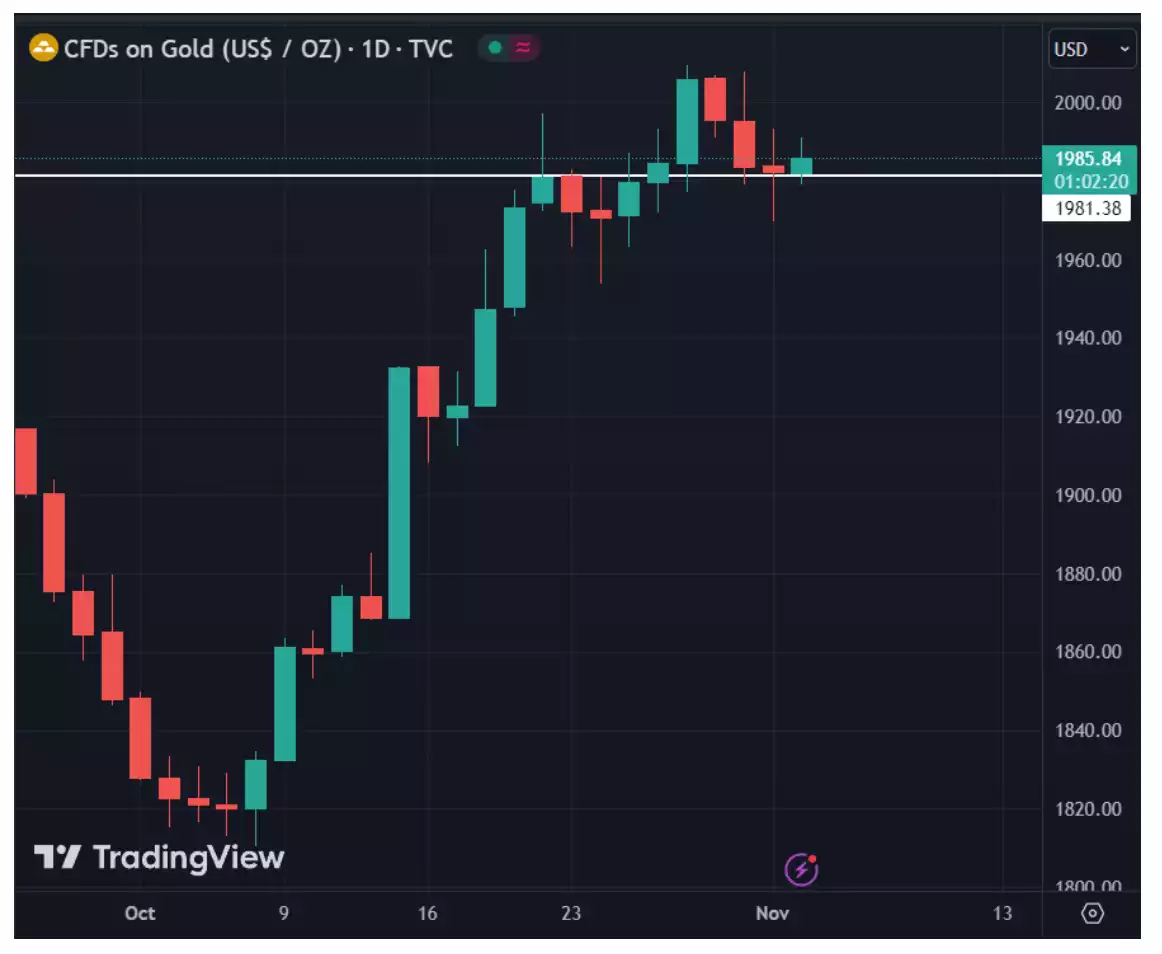Major Data Tonight & War Updates
News
|
Posted 03/11/2023
|
2092
Gold prices rose in the past day due to a weaker dollar and Treasury yields after the Federal Reserve's recent decision to maintain interest rates. Fed Chair Jerome Powell seemed less hawkish on inflation than he was the last time he spoke, which led to reduced expectations of further rate hikes. This began causing the dollar and treasury yields to decline and gold prices to rise. However, the gains in gold were limited as traders shifted towards risk markets, such as stocks. Spot gold rose 0.2% to $1,986.07 an ounce, and gold futures for December increased 0.3% to $1,993.70 an ounce. Importantly too gold has held above the USD1981 line we spoke to yesterday.
The focus is now on the upcoming U.S. nonfarm payrolls data (US jobs data), scheduled for tonight at 11:30PM AEDST time. Any signs of strength in the job market might give the Fed a reason to consider rate hikes. While gold is expected to benefit from the prospect of no more rate hikes, significant upside in gold prices remains uncertain, especially if U.S. interest rates are expected to stay higher for an extended period.
Powell emphasized that the Fed still has a long way to go before reaching its 2% inflation target and indicated that the bank's target rate would remain above 5% until at least the end of 2024 - a length of time it appears markets are dismissing for the moment. Higher interest rates typically negatively impact gold prices due to the increased opportunity cost of holding the precious metal. That said, we clearly now have many more market participants looking at the implications of those higher rates against a backdrop of unprecedented debt and still buying gold (maintaining higher gold prices regardless) as a hedge against the crisis that could trigger.
Israel-Hamas War to Widen or Cool Down?
Additionally (and again in defiance of high rates), gold has maintained strong gains from October, driven also by safe-haven demand amid geopolitical tensions such as the Israel-Hamas conflict.

According to CNN, US intelligence suggests that Iran and its proxies are adjusting their response to Israel's actions in Gaza to avoid direct conflict with Israel or the US while still causing harm to their adversaries. However, the US is concerned about the level of control Iran has over its various proxy groups, particularly Hezbollah. So far, Hezbollah and Israel have had light military exchanges from across their border, but it's unclear how closely Hezbollah takes orders from Iran. This means that if Iran requested them to try and cool-off the situation, it is uncertain if they would listen.
Not all proxies are equally obedient to Iran, and there's a risk of miscommunication or differing strategies among them. The US is closely monitoring the situation, as any significant escalation could have unintended consequences, potentially spreading the conflict further. The US has cautioned Iran and its proxies not to escalate the situation, but the delicate balance is challenging to maintain.
Hezbollah's leader, Hassan Nasrallah, is set to make a speech, which will be closely watched for signals regarding the group's intentions. While Hezbollah has shown restraint so far, the situation remains unpredictable, and there is a fine line between maintaining resistance against Israel and avoiding a wider war. If Hezbollah becomes more engaged in the conflict, they could bring the forces of 150,000 rockets and precision guided munitions.